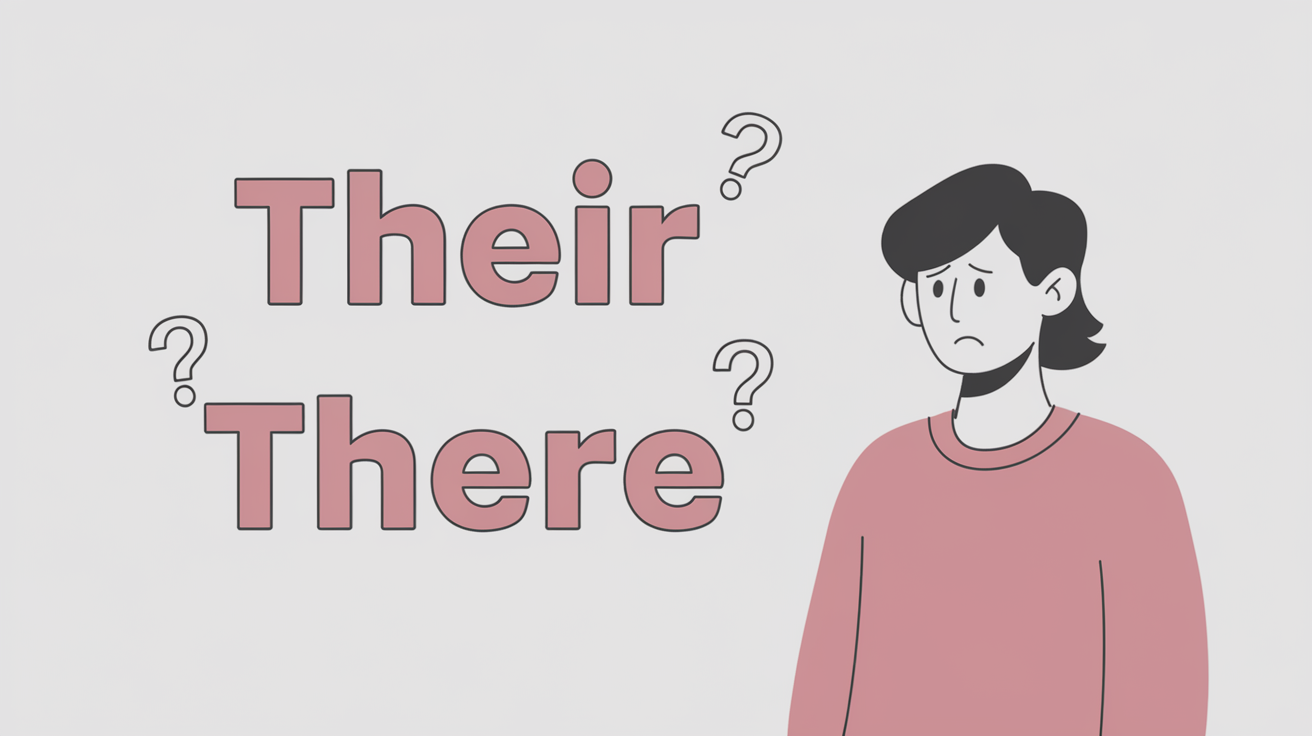Words trip us up.
We all feel that sting of doubt when writing an email or text. Is it “affect” or “effect”? “Their,” “there,” or “they’re”? These common mix-ups can make people second-guess themselves.
You’re not alone in this confusion. Even skilled writers pause at these tricky terms. The English language contains many words that look or sound similar but have totally different meanings.
This post breaks down 37 of the most commonly confused words and shows you how to use them correctly. By the end, you’ll feel more confident in your writing and avoid those embarrassing mix-ups that we all fear.
What are Tricky Words?

Tricky words are those sneaky terms in English that often confuse. They might look alike, sound the same, or have meanings that seem too close for comfort.
These words include homophones (words that sound alike but are spelled differently), homographs (words that are spelled the same but have different meanings), and words with subtle meaning differences. Many of us learned these in school but still mix them up. They’re not impossible to master, but they do require attention.
When misused, these words can change your intended meaning or make your writing look less polished. Understanding them helps you communicate more clearly and effectively.
| Type | Example | Explanation | Difference |
|---|---|---|---|
| Homophones | “bare” vs “bear” | Words that sound the same but have different meanings/spellings. | Same pronunciation but, different spelling and meaning. |
| Homonyms | “bat” (animal) vs “bat” (sports equipment) | Words that are spelled and pronounced the same but have different meanings. | Same spelling and pronunciation but, different meaning. |
| Homographs | “lead” (to guide) vs “lead” (metal) | Words that are spelled the same but pronounced differently based on meaning. | Same spelling but, different pronunciation and meaning. |
Common Tricky Words and Their Meanings

English contains many words that cause writers to pause and second-guess themselves. These troublesome terms often look or sound similar but carry different meanings.
When used incorrectly, they can change the entire message or make the writer appear less careful. The following list highlights words that frequently create confusion for people of all writing levels.
1. Absence
- Meaning: The state of being absent or not present.
- Pronunciation: /ˈæb.səns/ (AB-sens)
2. Acknowledgment
- Meaning: The act of recognizing or accepting something or someone.
- Pronunciation: /əkˈnɒlɪdʒmənt/ (ak-NOL-ij-ment)
3. Accommodate
- Meaning: To provide space or fulfill a need.
- Pronunciation: /əˈkɒmədeɪt/ (uh-KOM-uh-dayt)
4. Aisle
- Meaning: A passage between rows of seats.
- Pronunciation: /aɪl/ (AHL)
- Homophones/Homonyms: Isle
5. Anemone
- Meaning: A type of sea creature or a flowering plant.
- Pronunciation: /əˈnɛməni/ (uh-NEM-uh-nee)
6. Arthritis
- Meaning: Inflammation or pain in the joints.
- Pronunciation: /ɑːˈθraɪtɪs/ (ahr-THRY-tis)
7. Bureaucracy
- Meaning: A system of government or management where decisions are made by state officials rather than elected representatives.
- Pronunciation: /bjʊˈrɒkrəsi/ (byoo-ROK-ruh-see)
8. Cacophony
- Meaning: A harsh, discordant mixture of sounds.
- Pronunciation: /kəˈkɒfəni/ (kuh-KOF-uh-nee)
9. Conscience
- Meaning: The inner sense of right and wrong.
- Pronunciation: /ˈkɒnʃəns/ (KON-shuhns)
10. Corroborate
- Meaning: To confirm or give support to a statement or theory.
- Pronunciation: /kəˈrɒbəreɪt/ (kuh-ROB-uh-rayt)
11. Dilemma
- Meaning: A situation in which a difficult choice has to be made between two or more alternatives.
- Pronunciation: /dɪˈlɛmə/ (dih-LEM-uh)
12. Entrepreneur
- Meaning: A person who organizes and operates a business or businesses.
- Pronunciation: /ˌɒntrəprəˈnɜːr/ (ahn-truh-pruh-NUR)
13. Exhilarate
- Meaning: To make someone feel very happy or animated.
- Pronunciation: /ɪɡˈzɪləreɪt/ (ig-ZIL-uh-rayt)
14. Fluorescent
- Meaning: Emitting light as a result of exposure to radiation.
- Pronunciation: /flʊəˈrɛsənt/ (flor-ESS-uhnt)
15. Fuchsia
- Meaning: A vivid purplish-red color or a type of flowering plant.
- Pronunciation: /ˈfjuːʃə/ (FYOO-shuh)
16. Guillotine
- Meaning: A device used for beheading.
- Pronunciation: /ˈɡɪlətɪn/ (GIL-uh-teen)
17. Harass
- Meaning: To subject someone to aggressive pressure or intimidation.
- Pronunciation: /həˈræs/ (huh-RASS)
18. Hibernate
- Meaning: To spend a prolonged period in a dormant state.
- Pronunciation: /ˈhaɪbərneɪt/ (HY-bern-ate)
19. Hyperbole
- Meaning: Exaggerated statements or claims not meant to be taken literally.
- Pronunciation: /haɪˈpɜːbəli/ (hi-PUR-buh-lee)
20. Ignominious
- Meaning: Deserving or causing public shame or disgrace.
- Pronunciation: /ˌɪɡnəˈmɪnɪəs/ (ig-no-MIN-ee-uhs)
21. Jacquard
- Meaning: A fabric with an intricate, woven design.
- Pronunciation: /ˈʒækɑːrd/ (ZHAH-kahrd)
22. Liaison
- Meaning: Communication or cooperation between two parties.
- Pronunciation: /liˈeɪzɒn/ (lee-AY-zon)
23. Millennium
- Meaning: A period of one thousand years.
- Pronunciation: /mɪˈlɛniəm/ (mih-LEN-ee-um)
24. Memento
- Meaning: An object kept as a reminder of a person or event.
- Pronunciation: /məˈmɛntəʊ/ (muh-MEN-toh)
25. Miscellaneous
- Meaning: Consisting of various items or elements.
- Pronunciation: /ˌmɪsəˈleɪnɪəs/ (mis-uh-LAY-nee-uhs)
26. Nauseous
- Meaning: Feeling sick or inclined to vomit.
- Pronunciation: /ˈnɔːʃəs/ (NAW-shuhs)
27. Onomatopoeia
- Meaning: A word that imitates the sound it represents.
- Pronunciation: /ˌɒnəˌmætəˈpiːə/ (on-uh-MAT-uh-PEE-uh)
28. Parallel
- Meaning: Lines or planes that are equally distant at all points.
- Pronunciation: /ˈpærəlel/ (PAIR-uh-lel)
29. Pneumonia
- Meaning: A lung infection causing inflammation.
- Pronunciation: /nɪˈməʊnɪə/ (ni-MOH-nee-uh)
30. Protagonist
- Meaning: The main character in a story or drama.
- Pronunciation: /prəˈtæɡənɪst/ (pro-TAG-uh-nist)
31. Quinoa
- Meaning: A high-protein grain used in cooking.
- Pronunciation: /ˈkiːnwɑː/ (KEEN-wah)
32. Receipt
- Meaning: A document acknowledging the purchase of goods or services.
- Pronunciation: /rɪˈsiːt/ (ri-SEET)
33. Rendezvous
- Meaning: A meeting or gathering at a predetermined time and place.
- Pronunciation: /ˈrɒndɪvuː/ (RON-day-voo)
34. Sacrilegious
- Meaning: Showing disrespect or violation of something sacred.
- Pronunciation: /ˌsækrɪˈlɪdʒəs/ (sak-ruh-LIJ-uhs)
35. Seize
- Meaning: To take hold of something forcibly.
- Pronunciation: /siːz/ (SEEZ)
- Homophones/Homonyms: Cease
36. Surveillance
- Meaning: Close observation, especially of a suspect or criminal.
- Pronunciation: /sɜːˈveɪləns/ (ser-VAY-luhns)
37. Tsunami
- Meaning: A large sea wave caused by an underwater earthquake or volcanic eruption.
- Pronunciation: /tsuːˈnɑːmi/ (tsoo-NAH-mee)
Tips to Practice for a Better Vocabulary
Improving your vocabulary doesn’t happen overnight. It takes regular attention and practice to master those tricky words.
The good news is that you can make steady progress with some simple daily habits. Anyone can build a stronger word bank with the right methods. These techniques don’t require hours of study, just consistent effort over time.
Here are some practical ways to strengthen your word skills and avoid those common mix-ups that can affect your writing.
1. Read widely and often: Exposure to words in context helps you see how they’re correctly used in sentences.
2. Keep a personal word list: Write down confusing words when you spot them and review your list regularly.
3. Use new words in conversation: Speaking the words helps cement them in your memory better than silent reading.
4. Play word games: Games like Scrabble, crosswords, or mobile word apps make learning fun and effective.
5. Check yourself with a dictionary: When in doubt, look it up instead of guessing—this builds good habits.
6. Practice with flashcards: Create cards with the word on one side and meaning/usage on the other for quick review.
7. Write more: Regular writing forces you to think about word choice and helps identify your weak spots.
To Conclude
Words can be tricky companions in our writing trip.
Now you have a helpful guide to 37 commonly confused terms that trip up even skilled writers. Why does this matter? Clear communication builds trust and shows attention to detail in everything from job applications to social media posts.
What’s your next step? Start by focusing on just five words from our list that you mix up most often.
Make them your special project this week. Try the practice tips we shared, especially keeping a personal word list and using new words in conversation.
Want to share your own word confusion stories?
Drop a comment below about which words give you the most trouble. Your fellow readers might have extra tips that help everyone improve their word skills together.




